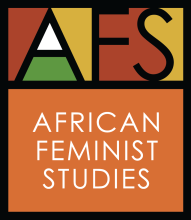
Nomusa Makhubu is Associate Professor in Art History and Visual Culture at the University of Cape Town. She is the new Chair of the AGI’s Advisory Board. Her works broadly cover art interventionism, popular culture, live art and social engagement in African visual art. She was the recipient of the ABSA L’Atelier Gerard Sekoto Award in 2006 and the Prix du Studio National des Arts Contemporain, Le Fresnoy in 2014. She received the American Council of Learned Societies (ACLS) African Humanities Program fellowship award and was selected to be an African Studies Association (ASA) Presidential fellow in 2016. In 2017, she was also a UCT-Harvard Mandela fellow at the Hutchins Centre for African and African American Research, Harvard University. In that same year, she was the First Runner Up for the Department of Science and Technology (DST) Women in Science Awards. Recognising the need for broader creative mentorship, collaborative practice and socially responsive arts, she started the Creative Knowledge Resources project. She co-edited a Third Text Special Issue: ‘The Art of Change’ (2013) and later co-curated with Nkule Mabaso the international exhibition, “Fantastic” in 2015 and “The stronger we become” in 2019 at the 58th Venice Biennale in Italy. Makhubu is a member of the South African Young Academy of Science (SAYAS).
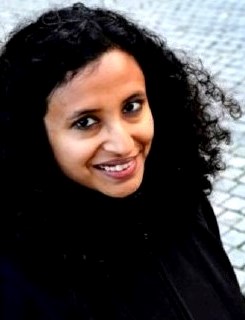
Amrita Pande, author of Wombs in Labor: Transnational Commercial Surrogacy in India (2014: Columbia University Press) is A/Prof in the Sociology department at University of Cape Town. Her research focuses on the intersection of globalization and the intimate. Her work has appeared in Signs: Journal of Women in Culture and Society, Gender and Society, Current Sociology, Critical Social Policy, International Migration Review, Qualitative Sociology, Feminist Studies, Indian Journal of Gender Studies, Anthropologica, PhiloSOPHIA, Reproductive BioMedicine and in numerous edited volumes and newspapers. She has written for national newspapers across the world and has appeared in Laurie Taylor's Thinking Allowed on the BBC, Sarah Carey’s Newstalk on Irish radio, DR2 Deadline (Danish National television) and Otherwise SAfM, South Africa to discuss her work on surrogacy. She is also an educator-performer touring the world with a multi-media docu-drama, Made in India: Notes from a Baby Farm based on her ethnographic work on surrogacy. She is currently leading a large research project exploring the “global fertility flows”, of eggs, sperms, embryos and wombs, connecting the world in unexpected ways.

Chris Ouma received his BA (1st class hons) in the Literature Theatre and Film Department at Moi University, Eldoret Kenya. After completing his MA in 2007 in the Department of African literature at University of the Wit***ersrand, Chris went on to receive his doctorate in 2011 in the same department, where he worked under the Andrew W Mellon mentorship program. He specialised in new diasporic African fiction and focused on childhood as a set of ideas for engaging with contemporary African identity formation. In looking at the recurrent figures, images and memories of childhood the study engages with a range of ideas around memory, alternative archives, heritages, legacies, traditions and genealogies of identity and identity-making. Chris’s work has since then sought to find the connections between childhood and contemporary diasporic African identities, especially around the politics of cultural production and the migration of material cultures across continents. Chris is co-founder of the Diaspora Working Group (DWG) at UCT. He is currently co-editor of the journal Social Dynamics: A Journal of African Studies.
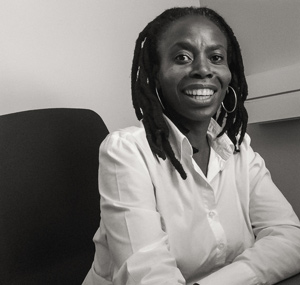
Elelwani Ramugondo is a professor of occupational therapy at UCT. She worked as a clinician in rural South Africa and in the United States of America during the 1990s. She is previous Head of Occupational Therapy at UCT. Following the fall of the Rhodes Statue at UCT, she served for a year as Special Advisor on Transformation to the Vice Chancellor. During 2016 and 2017, she co-Chaired the Curriculum Change Working Group, tasked with facilitating dialogue on decolonising curricula university-wide, and developing a UCT curriculum change framework. Ramugondo is the current Chair of the Academic Freedom Committee at UCT. Her scholarship on intergenerational play led to the conceptualisation of the term, occupational consciousness, informed by liberation philosophy, and coloniality as an aspect of western led modernity. This has laid groundwork for several doctoral studies adopting a decolonial approach to scholarship in occupational therapy and occupational science. Ramugondo has published several peer reviewed articles and chapters in books. Her publications cover a broad range of topics including theorisation in the context of discovery, spirituality in occupational therapy practice and the political nature of human occupation. She has recently published a co-edited book titled, Concepts in occupational therapy: Understanding Southern perspectives.

Fatima Seedat (PhD Islamic Law, McGill) has a specialisation in gender studies at the intersections of Islam, sexuality and law. Her doctoral dissertation examined the discursive construction of the female legal subject through narratives of sex-difference in classical and contemporary Islamic law. She writes on the convergences of Islam and feminism, queering the study of Islam, militant Muslim masculinity and egalitarian readings of Islamic law. Her current research projects include feminist readings strategies and reform methods for Islamic law and she is in the early stages of a project on gender non-conforming Muslim sexualities. Dr. Seedat’s teaching focus lies in African and other feminist theorising, and feminist research and writing methods.

Floretta Boonzaier is Associate Professor in Psychology at the University of Cape Town. Her work spans feminist, critical, social and postcolonial psychologies, with interests in intersectional subjectivities, youth subjectivities, gendered and sexual identifications, participatory methodologies and gendered violence. She co-authored South African Women Living with HIV: Global lessons from local voices published by Indiana University Press, and wrote for Women Voicing Resistance: Discursive and narrative explorations, published by Routledge, 2014. Her work has appeared in journals such as Feminism & Psychology, British Journal of Criminology, Culture, Health & Sexuality, Journal of Gender Studies and Violence Against Women. In 2010 she received the runner-up award in the South African Department of Science and Technology’s Women in Science awards, for the category of Distinguished Young Woman Researcher in the Social Sciences or Humanities. She is an alumna Fellow of the W.E.B. Du Bois Research Institute at the Hutchins Center, Harvard University. She also serves on the board of the NGO, RAPCAN (Resources Aimed at the Prevention of Child Abuse and Neglect).
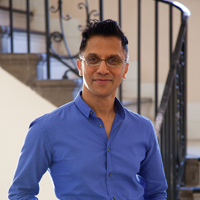
Jay Pather is Associate Professor at the University of Cape Town, Director of Institute on Creative Arts and Creative Arts and Artistic Director of Siwela Sonke. A Fulbright Scholar, he read for an MA in Dance Theatre at New York University and since then Pather’s work has traveled widely extending across discipline, site and culture. He has collaborated with visual artists, architects and urban planners, since 1984, taking his inter-cultural performances into public spaces and working with the architecture of Johannesburg, Durban, London, Zanzibar, Amsterdam, New York, Barcelona, Mumbai, Muscat, New Delhi, Copenhagen and Cape Town.
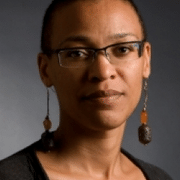
Shose Kessi is a lecturer in the Department of Psychology at UCT. The focus of her research is on community-based empowerment and social change, particularly exploring how to address issues of identity, such as race, class, and gender, that impact on people’s participation in transformation efforts. She is currently working on the development of Photovoice methodology as a research tool that can raise consciousness and mobilize community groups into social action. Before joining UCT, Shose worked in the development sector in the area of reproductive health, HIV/AIDS, and programme evaluation. She completed her PhD in 2010 at the London School of Economics and is a fellow of the WEB DuBois Research Institute, Hutchins Centre, Harvard University.
